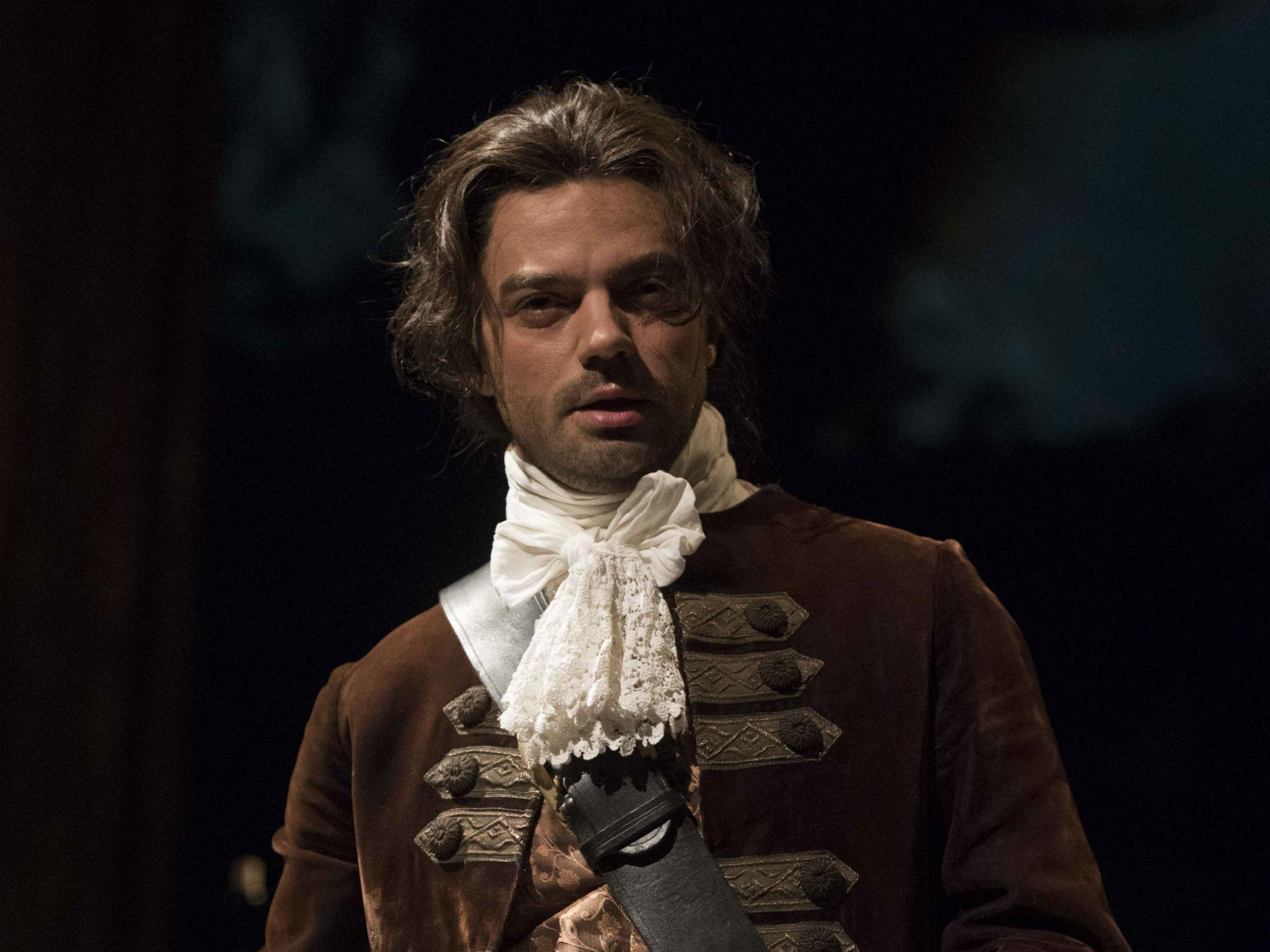The Libertine, Theatre Royal, Haymarket, London, review: Dominic Cooper is curiously colourless and uncompelling as Rochester
Dominic Cooper plays hedonistic 17th Century rake the Earl of Rochester in this sexually charged play by award-winning playwright Stephen Jeffreys

Your support helps us to tell the story
From reproductive rights to climate change to Big Tech, The Independent is on the ground when the story is developing. Whether it's investigating the financials of Elon Musk's pro-Trump PAC or producing our latest documentary, 'The A Word', which shines a light on the American women fighting for reproductive rights, we know how important it is to parse out the facts from the messaging.
At such a critical moment in US history, we need reporters on the ground. Your donation allows us to keep sending journalists to speak to both sides of the story.
The Independent is trusted by Americans across the entire political spectrum. And unlike many other quality news outlets, we choose not to lock Americans out of our reporting and analysis with paywalls. We believe quality journalism should be available to everyone, paid for by those who can afford it.
Your support makes all the difference.John Wilmot, 2nd Earl of Rochester, roared down the fast lane with a resolute recklessness that makes other Restoration rakes look a bit crippled by caution. “His contempt for everything that others respect almost amounts to sublimity,” wrote the critic William Hazlitt of this hard-drinking, free-thinking rebel, anti-monarchical chum of Charles II, and author of some of best and most licentious lyric poems and satires of the age.
When Stephen Jeffreys’s play about him was unveiled at the Royal Court in 1994, it was purposefully paired (and performed in rep) with a revival of Etherege’s The Man of Mode (1676) whose witty, womanising hero, Dorimant, is thought by some to have been modelled on Rochester. This pairing underscored the contrast Jeffreys’s piece makes between the vivacious, disease-immune stage version and the wrecked reality of a man who was dead of drink and the pox at the age of 33.
Since then, the central role has been famously tackled by John Malkovich on stage and by Johnny Depp in the movie version. You might have thought that Dominic Cooper would be pretty ideal casting for Terry Johnson’s new production. His excellent portrayal Dakin, the cocky sixth-form heart-throb in Alan Bennett’s The History Boys, showed how adept he is at suggesting the strategic power of sexiness. But he’s curiously colourless and uncompelling as Rochester. It’s a decent performance but, as Mae West might have said, decency has nothing to do with it. “I must always exceed or I don't feel I’m alive,” the character tells the King. For me, though, Cooper does not get across adequately the extravagant aristocratic contempt or the philosophical edge of this hedonistic protest against what, for him, is the humdrum meaninglessness of existence.
That's why, in Jeffreys’s account, Rochester loves the theatre – life presented as a succession of urgent moments with guaranteed consequences rather than a “listless trickle of ‘Why should I’s?'”. Tim Shortall’s handsome design, with its gilt picture-frame, gives us amusing access to backstage at the Playhouse where we see the smitten Earl instructing the aspiring actress Elizabeth Barry (Ophelia Lovibond) in how to perform with true feeling as opposed to the semaphoric signalling of vague emotion that passes for acting here. The best performance of the evening comes from Jasper Britton who brilliantly captures the posturing, overripe Charles II's unnerving swings between chumminess and assertion of power. The mutual disappointment of monarch and much-banished subject – over waste of a talent, waste of a reign – is conveyed in all veiled aggression.
A chorus of women wielding giant dildos greets us as the start of the second act as they rehearse Sodom, one of Rochester's (alleged) smacks at the King. Johnson’s production seems happier with the bawdy than with the more painful strains in the play, though it does pull off to perfection the difficult scene where Rochester mutinies from sitting for an official husband-and-wife portrait and poses instead with an organ grinder's monkey. He thus reveals a resounding callousness towards his wife and a despairing levity at the thought that people are merely monkeys who know the name of their ancestors. If only the playing were on this level throughout. In general, when Cooper’s Rochester quotes his own poems, I couldn’t really credit that he had written them.
Join our commenting forum
Join thought-provoking conversations, follow other Independent readers and see their replies
Comments